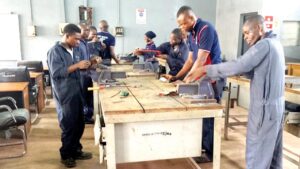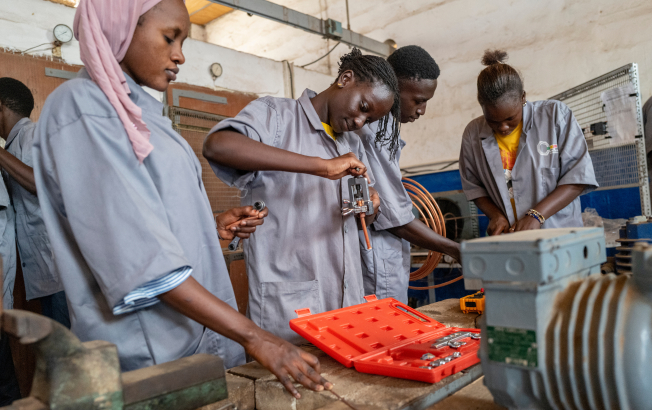In Nigeria, poverty remains an omnipresent issue, particularly among its youth population. By incorporating vocational education into schools, Nigeria has the opportunity to equip its youth with the skills and knowledge necessary to break the cycle of poverty and build a brighter future.
One of the key advantages of integrating vocational training into schools is its ability to provide practical skills that are directly applicable to the workforce. Traditional academic education often focuses on theoretical knowledge, which may not always translate into employable skills.
In contrast, vocational training emphasizes hands-on learning and equips students with skills in trades such as carpentry, plumbing, electrical work, agriculture, and more. These skills are in high demand in both urban and rural areas, offering students viable pathways to employment and entrepreneurship.

Furthermore, vocational training can help address the mismatch between the skills demanded by employers and those possessed by job seekers. In Nigeria, many industries face a shortage of skilled workers, while a significant portion of the population remains unemployed or underemployed.
By providing vocational education, schools can bridge this gap by producing graduates who are equipped with the practical skills needed to meet the demands of the job market.
Moreover, integrating vocational training into schools can promote innovation and entrepreneurship among Nigeria’s youth. Many successful businesses start from humble beginnings, often rooted in vocational skills.
By nurturing an entrepreneurial mindset and providing students with the technical know-how to pursue their ideas, vocational education can unleash the potential of Nigeria’s young innovators and job creators.

Additionally, vocational training offers an alternative pathway to success for students who may not excel in traditional academic subjects. Not all students thrive in a classroom setting or have access to higher education opportunities.
By offering vocational programs, schools can cater to diverse learning styles and provide a more inclusive education system that empowers all students to succeed.
However, the successful integration of vocational training into Nigerian schools requires careful planning and investment. This includes updating curriculum standards, providing adequate resources and infrastructure, training teachers, and establishing partnerships with industry stakeholders to ensure that students receive relevant and up-to-date training.
In conclusion, incorporating vocational training into the Nigerian school system holds immense potential to combat poverty and empower the country’s youth.
By equipping students with practical skills, fostering entrepreneurship, and providing alternative pathways to success, vocational education can pave the way for a brighter future for Nigeria and its citizens.
It is imperative for policymakers, educators, and stakeholders to prioritize and invest in vocational training as a means of unlocking opportunities and driving sustainable development in the nation.




